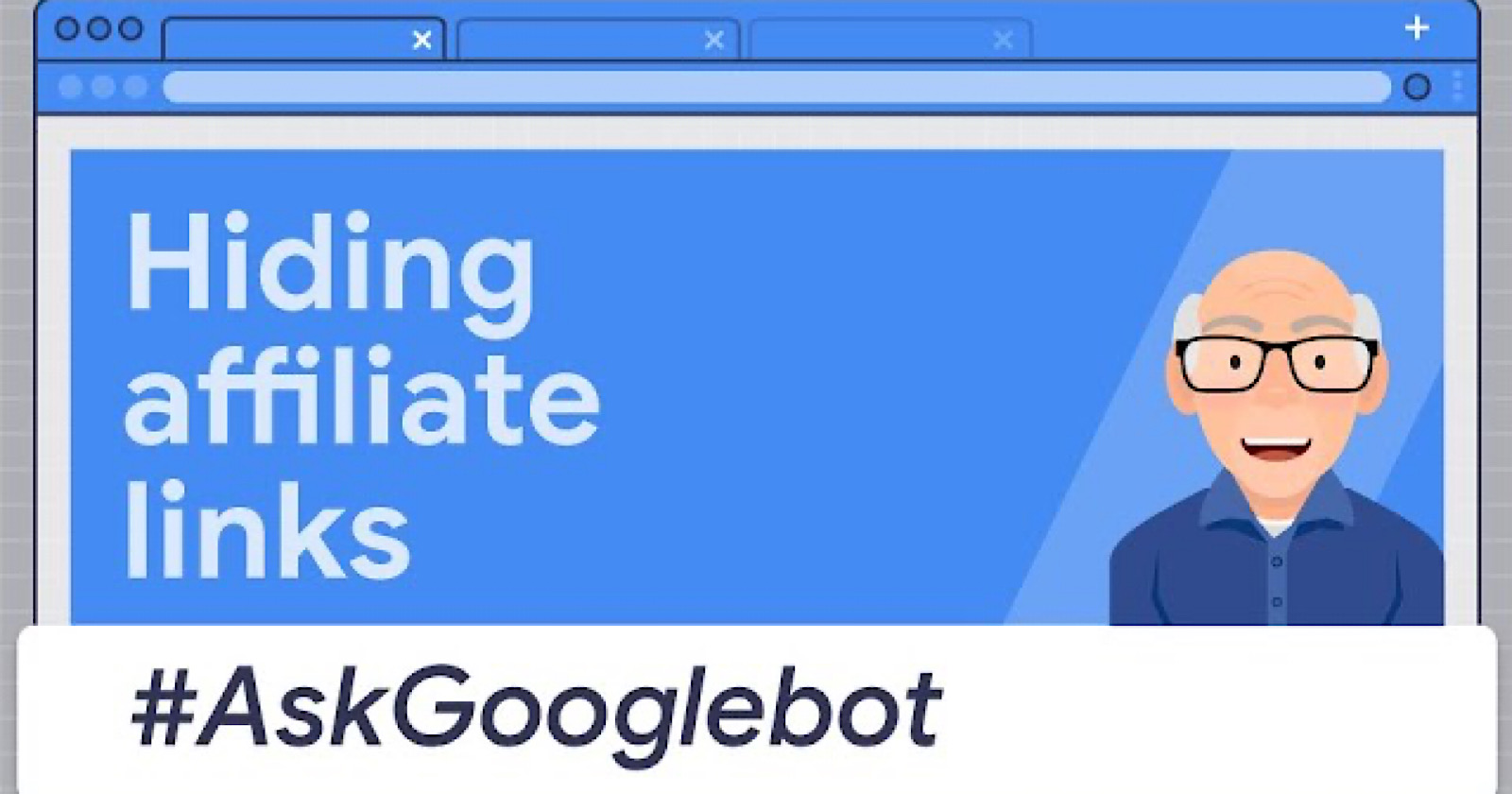Google’s John Mueller answers a question about affiliate links and whether it’s beneficial to hide them from search engines.
This is discussed in the latest installment of the Ask Googlebot series on YouTube. Specifically, Mueller addresses the following question:
“Is it any good to hide store/affiliate links?”
It’s an interesting question to tackle, considering hiding content from search engine crawlers is against Google’s guidelines regardless of what the content is.
Nevertheless, Mueller answers it to the best of his ability. Before addressing the question Mueller briefly explains what affiliate links are.
Affiliate links are links to other businesses. The site owner placing the links will get paid when users go to those businesses and buy products or services.
As far as Google is concerned, affiliate links are perfectly fine. It’s acceptable to use them as a way of monetizing a website.
With that said, there are two important aspects to keep in mind in order to stay within Google’s guidelines.
Mueller goes on to explain what those aspects are while addressing whether there’s any benefit to hiding affiliate links.
Related: 11 Amazing Affiliate Marketing Blogs
Google’s John Mueller On Correct Use Of Affiliate Links
Google considers affiliate links an acceptable form of monetization as long as two conditions are met.
First, the website should provide unique content and value all on its own.
It’s easy to republish a generic or low-quality product description, but users can get those anywhere on the web.
Users expect to find something useful on the website too, especially if they’re searching with intent to purchase.
The second condition is affiliate links should be declared. Site owners are required to declare affiliate links both for users and for search engines.
For users, it’s worth checking with local regulations regarding what you need to do. Different locations have varying laws around disclosure of affiliate links.
For search engines, site owners should use the rel=”nofollow” or rel=”sponsored” link attributes to express that it’s an affiliate link.
It’s not necessary to hide or obfuscate affiliate links for search engines, Mueller says.
There’s no need to use any type of automatic JavaScript, on-click handling, or cloaking.
Just link to affiliates as normal and declare them so Google can treat the links appropriately.
If you use JavaScript to add affiliate links, remember to use the appropriate attributes there too.
Mueller acknowledges that affiliate links are often used within the context of product reviews. If that’s the case for your site, Mueller suggests checking to see if there’s any structured data that might be appropriate to implement on your pages.
Mueller didn’t mention this part, but it’s important to note here that Google rolled out an algorithm update targeted at product reviews back in April.
In short, Google is getting more strict regarding the quality of product reviews. Site owners that publish product reviews need to familiarize themselves with the details of this update in order to stay on the good side of Google’s algorithms.
Source: YouTube





![AI Overviews: We Reverse-Engineered Them So You Don't Have To [+ What You Need To Do Next]](https://www.searchenginejournal.com/wp-content/uploads/2025/04/sidebar1x-455.png)